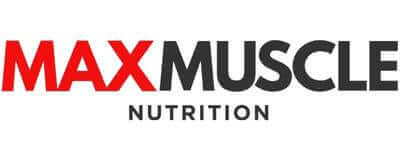Hey Fitness Warriors,
Muscle hypertrophy, or the growth of muscle cells, is a primary goal for many athletes and fitness enthusiasts. By understanding the science behind muscle growth, you can significantly enhance your results. In this guide, we’ll dive into the mechanisms of hypertrophy, share training strategies, and cover nutritional tips to help you maximize your muscle gains.
Understanding Muscle Hypertrophy

Muscle hypertrophy occurs through two primary mechanisms: mechanical tension and metabolic stress. When you engage in resistance training, small tears form in the muscle fibers, which repair and grow back thicker and stronger.
Mechanisms of Muscle Growth:
- Mechanical Tension: Generated through weightlifting, which creates resistance-based contractions that stimulate muscle repair and growth.
- Metabolic Stress: Caused by exercises that lead to lactic acid buildup, promoting growth by increasing hormone levels and cellular swelling.
Discover the science of hypertrophy HERE
Training Strategies for Maximizing Hypertrophy

To get the best results, incorporating the following strategies into your workout routine is essential:
- Progressive Overload: Continuously increase the demands on your muscles by adding weight, adjusting reps, or changing exercise pace.
- Optimal Training Volume: Aim for a higher training volume (total sets and reps) to support hypertrophy. The ideal volume can vary, so listen to your body’s recovery needs.
- Vary Your Exercises: Incorporate different exercises to target all muscle groups, helping prevent plateaus and promote balanced growth.
Learn about our 8-week elite training program for optimal results HERE
Nutritional Support for Muscle Growth

Nutrition plays a crucial role in muscle growth. Here are three key areas to focus on:
- Adequate Protein Intake: Protein is essential for muscle repair. Aim for 1.6 to 2.2 grams of protein per kilogram of body weight daily from various sources.
- Caloric Surplus: To build muscle, consume more calories than you burn. This surplus provides the energy necessary for muscle tissue development.
- Timing Your Nutrition: Eating protein and carbs before and after workouts can enhance recovery and growth, giving your body essential nutrients when it’s most receptive.
Explore Nutrition Strategies for Strengthening Muscles Here.
Recovery and Its Impact on Muscle Growth

Recovery is vital to any hypertrophy-focused routine. Here are some ways to optimize it:
- Importance of Sleep: Quality sleep supports muscle recovery by elevating growth hormone levels, essential for repair.
- Active Recovery: Low-intensity activity on rest days promotes blood flow, helping deliver nutrients to muscles and remove waste.
Read more on active recovery tips for optimal training HERE
Conclusion
Maximizing muscle hypertrophy requires a combination of strategic training, proper nutrition, and focused recovery. Understanding these principles can help you achieve significant muscle gains. Share your journey and insights with others in the fitness community to inspire and motivate each other toward personal bests.
Ready to start training like a pro?
Visit Max Muscle Sports Nutrition - Stone Mountain for expert advice and high-quality products to support your performance!
Got muscle-building tips that work for you?
Share them with our community @maxmuscleatl and inspire others to fuel their body right!
Mike Pringle - Author
Mike Pringle is a former pro football player with 15 years of experience under his belt. Now, as a certified fitness trainer, nutrition coach, and owner of Max Muscle Sports Nutrition - Stone Mountain, he’s spent over 13 years helping people just like you crush their health and fitness goals. Whether you're just starting out or a seasoned athlete, Mike’s got the knowledge and passion to guide you every step of the way.

